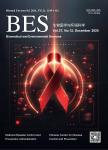Using 16S rDNA Sequencing Technology to Preliminarily Analyze Intestinal Flora in Children with Mycoplasma pneumoniae Pneumonia
Using 16S rDNA Sequencing Technology to Preliminarily Analyze Intestinal Flora in Children with Mycoplasma pneumoniae Pneumonia作者机构:Department of PediatricsBeijing Friendship HospitalCapital Medical UniversityBeijing 100050China Department of PediatricsBaotou Fourth Hospital(Baotou Children’s Hospital)Baotou 014030Inner Mongolia Autonomous RegionChina Department of PediatricsBeijing Chang Ping Hospital of Integrated Chinese and Western MedicineBeijing 100096China Tropical Medicine Research InstituteBeijing Friendship HospitalCapital Medical UniversityBeijing 100050China
出 版 物:《Biomedical and Environmental Sciences》 (生物医学与环境科学(英文版))
年 卷 期:2022年第35卷第6期
页 面:528-537页
核心收录:
学科分类:1002[医学-临床医学] 100202[医学-儿科学] 10[医学]
主 题:Intestinal flora Mycoplasma pneumoniae pneumonia Probiotics Respiratory tract infection
摘 要:Objective We investigated changes in the intestinal flora of children with Mycoplasma pneumoniae pneumonia(MPP).Methods Between September 2019 and November 2019,stool samples from 14 children with MPP from The Fourth Hospital of Baotou city,Inner Mongolia Autonomous Region,were collected and divided into general treatment(AF)and probiotic(AFY)groups,according to the treatment of“combined Bifidobacterium,Lactobacillus,Enterococcus,and Bacillus cereus tablets live.Highthroughput 16S rDNA sequencing was used to identify intestinal *** Intestinal flora abundance and diversity in children with MPP were *** Shannon and Simpson indices were lower in the AF group when compared with healthy controls(P.05).When compared with healthy controls,the proportion of Enterorhabdus was lower in the AF group,while the proportion of Lachnoclostridium was higher(P0.05).The proportion of Bifidobacteria and Akkermansia was lower in the AFY group but Enterococcus,Lachnoclostridium,Roseburia,and Erysipelatoclostridium proportions were *** proportion of Escherichia coli-Shigella in the AFY group after treatment was decreased(P0.05).Conclusions The intestinal flora of children with MPP is disturbed,manifested as decreased abundance and diversity,and decreased *** probiotic mixture partly improved intestinal flora disorders.



